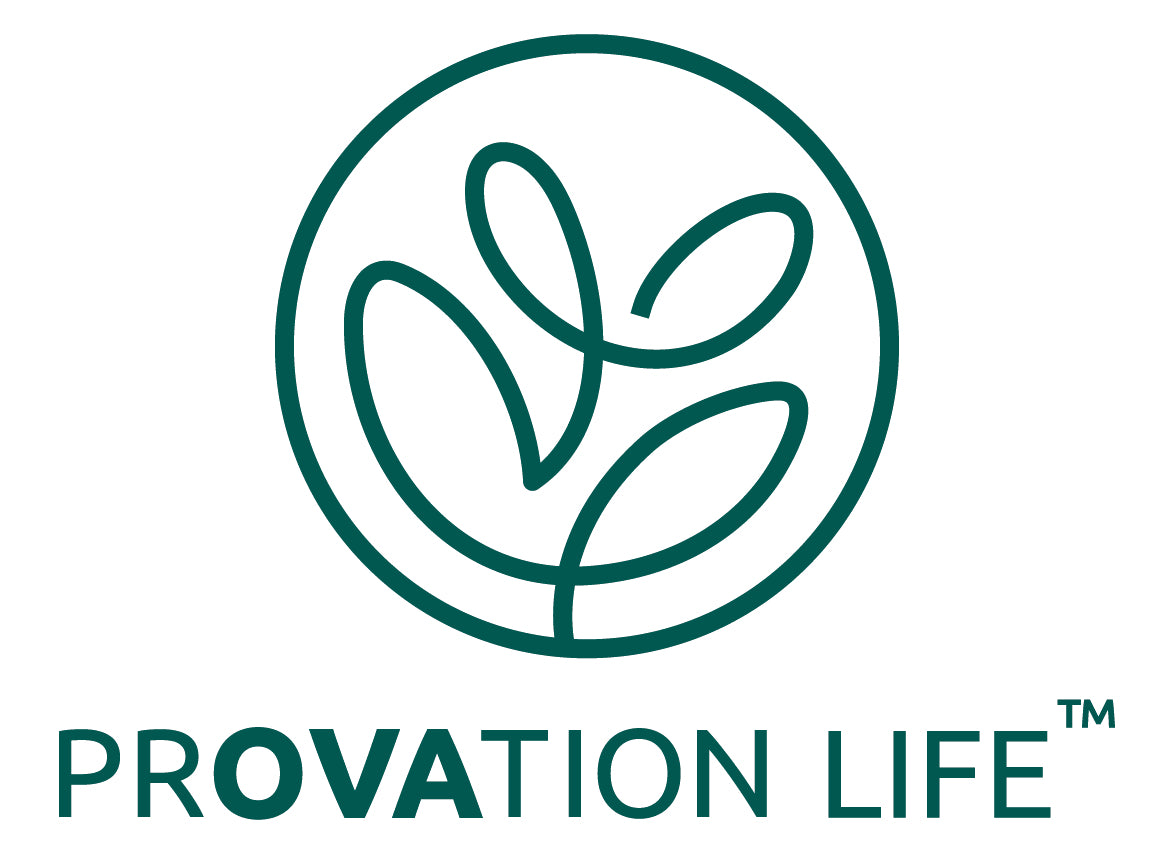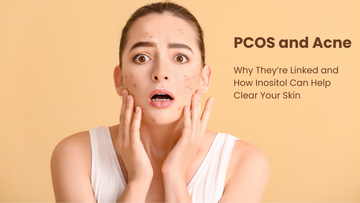PCOS and Acne: Why They’re Linked and How Inositol Can Help Clear Your Skin
by Herman Weiss on Dec 16, 2024
If you’re dealing with PCOS and stubborn acne, you’re not alone. Those deep, painful breakouts along your jawline and chin aren’t just frustrating—they can feel impossible to manage. But here’s the good news: you don’t have to accept acne as your new normal. By understanding the connection between PCOS and acne, and how inositol can help balance your hormones, you can take back control of your skin. Let’s break it all down.
Why Does PCOS Cause Acne?
We know PCOS comes with a laundry list of symptoms, and unfortunately, acne is one of the most common. But why? It all boils down to three main culprits: hormones, insulin resistance, and inflammation.
1. Hormones Gone Rogue
PCOS increases your levels of androgens, also known as "male hormones." While everyone has them, women with PCOS often have too much, and here’s what they do:
- Boost oil production in your skin, clogging pores.
- Trigger the growth of acne-causing bacteria.
- Fuel deep, painful breakouts that are slow to heal.
2. Insulin Resistance Is a Sneaky Villain
PCOS and insulin resistance are BFFs, but not in a good way. When your body struggles to use insulin properly, your blood sugar rises, and your ovaries respond by producing more androgens. This hormonal imbalance can wreak havoc on your skin, turning mild breakouts into full-blown cystic acne.
3. Inflammation Throws Gas on the Fire
If that weren’t enough, PCOS is also linked to chronic low-grade inflammation. This not only makes your breakouts more severe but also slows down healing and leaves scars or discoloration.
What Does PCOS-Related Acne Look Like?
If you’re wondering whether your acne is tied to PCOS, here are some telltale signs:
- Location: It’s often concentrated along your jawline, chin, and lower cheeks—classic spots for hormonal acne.
- Type: Think deep, cystic, and painful bumps that don’t respond well to typical acne treatments.
- Timing: Breakouts can spike around your period or during stressful times.
- Persistence: They stick around and may leave scars or dark spots after healing.
Can Inositol Help With Acne? Absolutely.
If you’re tired of cycling through products and treatments that don’t work, here’s why inositol could be a game-changer. Inositol is a natural compound, similar to a B-vitamin, that’s been shown to work wonders for women with PCOS. Our flagship product, Inositol Plus, combines the most effective forms—myo-inositol and D-chiro-inositol—to help you balance your hormones and reclaim your skin.
1. Balances Hormones (Bye-Bye, Androgens)
Hormonal imbalances are the root of PCOS-related acne, and inositol is a powerhouse when it comes to restoring balance:
- It reduces androgens, calming down the overproduction of oil in your skin.
- It supports ovulation, stabilizing the wild hormone fluctuations that fuel breakouts.
2. Tackles Insulin Resistance
By improving insulin sensitivity, inositol helps keep insulin levels in check. This means your ovaries stop overproducing androgens, giving your skin a much-needed break from those hormonal surges.
3. Soothes Inflammation
Inositol isn’t just about hormones—it’s also great for reducing the chronic inflammation that makes breakouts worse. By calming your body from the inside out, it helps your skin heal faster and look healthier overall.

How to Use Inositol for Clearer Skin
Adding inositol to your daily routine is easy, especially with a product like Inositol Plus. This advanced formula combines myo-inositol and D-chiro-inositol in the ideal ratio to target PCOS at its core. Consistent use can lead to fewer breakouts, improved skin texture, and reduced post-acne marks.
Taking a Holistic Approach to PCOS and Acne
While inositol can be a key player in your acne-fighting strategy, combining it with other healthy habits will supercharge your results.
1. Build a Skin-Loving Routine
- Use gentle, non-comedogenic cleansers and moisturizers.
- Incorporate ingredients like salicylic acid or benzoyl peroxide to target acne directly.
- Never skip sunscreen—it protects your skin from scars and discoloration.
2. Eat for Your Hormones
- Focus on low-glycemic foods like whole grains, leafy greens, and lean proteins to keep blood sugar stable.
- Cut back on sugar and processed foods that can trigger inflammation.
3. Move Your Body
- Exercise is a natural insulin sensitizer and helps reduce inflammation. Bonus: it also boosts your mood!
4. De-Stress Like a Pro
- Chronic stress can worsen PCOS symptoms and acne. Try yoga, meditation, or just spending time doing things you love to keep cortisol in check.
What Science Says About Inositol and Acne
Research backs up what so many women already know: inositol works.
- A 2019 study found that myo-inositol significantly reduced androgen levels in women with PCOS, which directly translated to fewer acne breakouts.
- Other studies have highlighted inositol’s ability to improve metabolic health, including reducing insulin resistance—a game-changer for women struggling with PCOS-related acne.
When to Call in the Experts
If your acne is severe or impacting your confidence, don’t hesitate to see a dermatologist or endocrinologist. Professional treatments like prescription medications, hormonal therapy, or in-office procedures can complement your inositol regimen for even better results.
Your Journey to Clearer Skin Starts Here
PCOS-related acne is more than skin deep—it’s a visible reminder of the hormonal and metabolic struggles inside your body. But here’s the thing: you can take control. With Inositol and a proactive approach to managing PCOS, clearer, healthier skin isn’t just a dream—it’s achievable.
Myo-Inositol and Androgen Reduction
- Ciampaglia, W., & Cognigni, G. E. (2019). Management of infertility in women with polycystic ovary syndrome: A comprehensive clinical review. Reproductive Biomedicine Online, 39(1), 41–52.
- This study discusses how Myo-inositol reduces androgen levels in women with PCOS, leading to improvements in symptoms like acne.
Resources
- Genazzani, A. D., et al. (2012). Effects of Myo-Inositol in Women with PCOS: A Systematic Review of Randomized Controlled Trials. Gynecological Endocrinology, 28(7), 509–515.
- This research highlights inositol's role in improving insulin sensitivity and metabolic health, which helps address PCOS symptoms such as acne.











